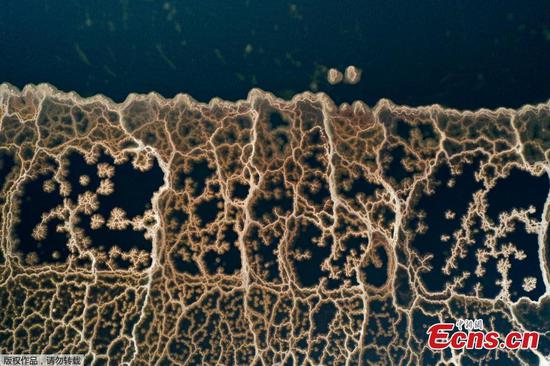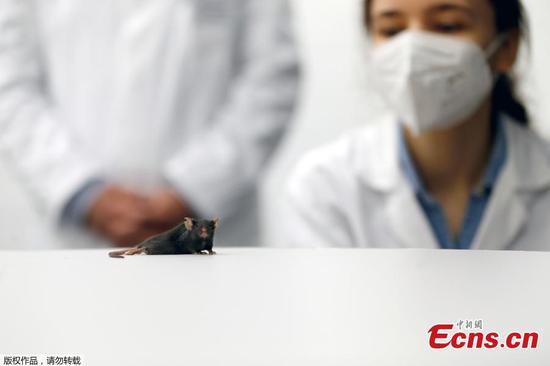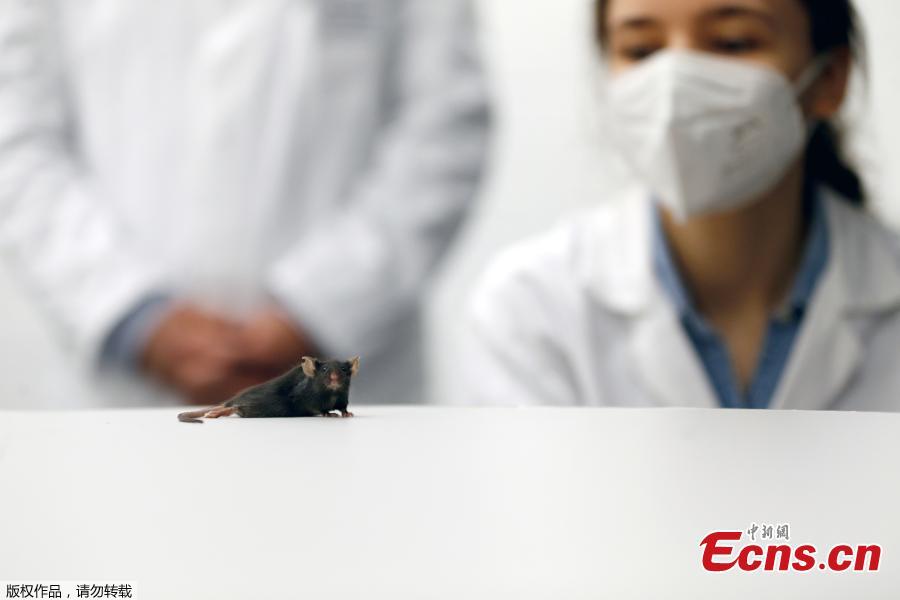
A paralyzed mouse is seen in a lab at Ruhr University in Bochum, Germany on Jan. 21, 2021. (Photo/Agencies)
German researchers have enabled mice paralyzed after spinal cord injuries to walk again, re-establishing a neural link hitherto considered irreparable in mammals by using a designer protein injected into the brain.
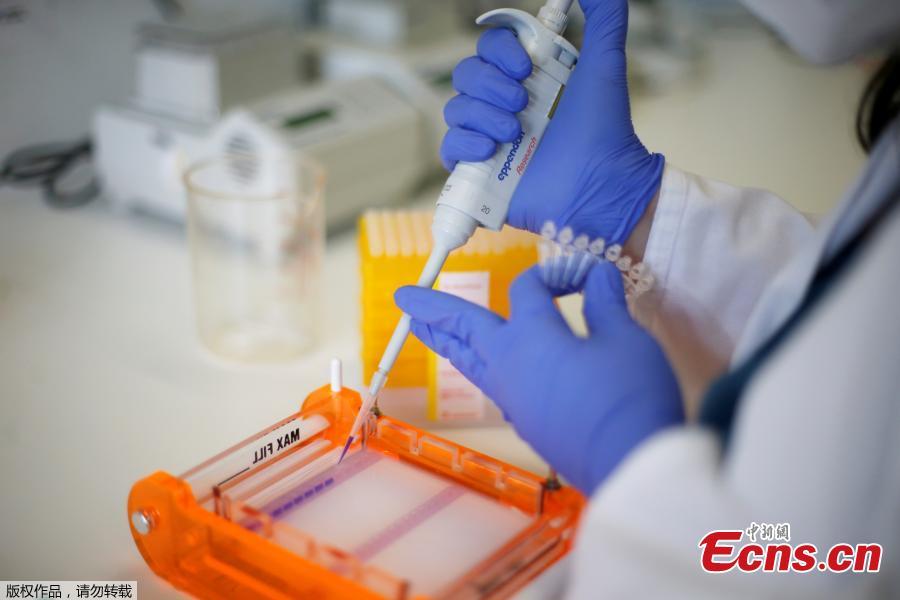
A woman works with samples in a lab at Ruhr University in Bochum, Germany on Jan. 21, 2021. (Photo/Agencies)
German researchers have enabled mice paralyzed after spinal cord injuries to walk again, re-establishing a neural link hitherto considered irreparable in mammals by using a designer protein injected into the brain.
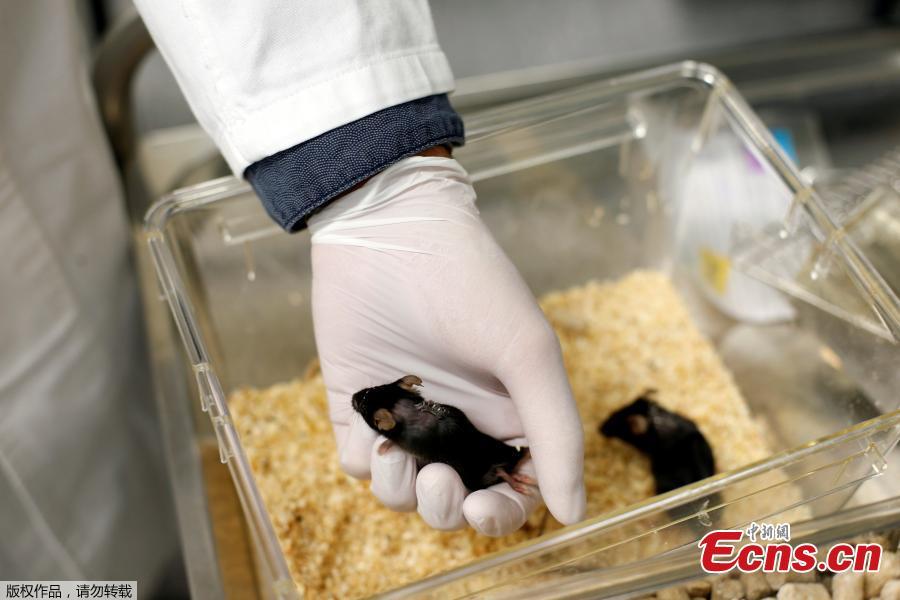
A paralyzed mouse is removed from its enclosure in a lab at Ruhr University in Bochum, Germany on Jan. 21, 2021. (Photo/Agencies)
German researchers have enabled mice paralyzed after spinal cord injuries to walk again, re-establishing a neural link hitherto considered irreparable in mammals by using a designer protein injected into the brain.
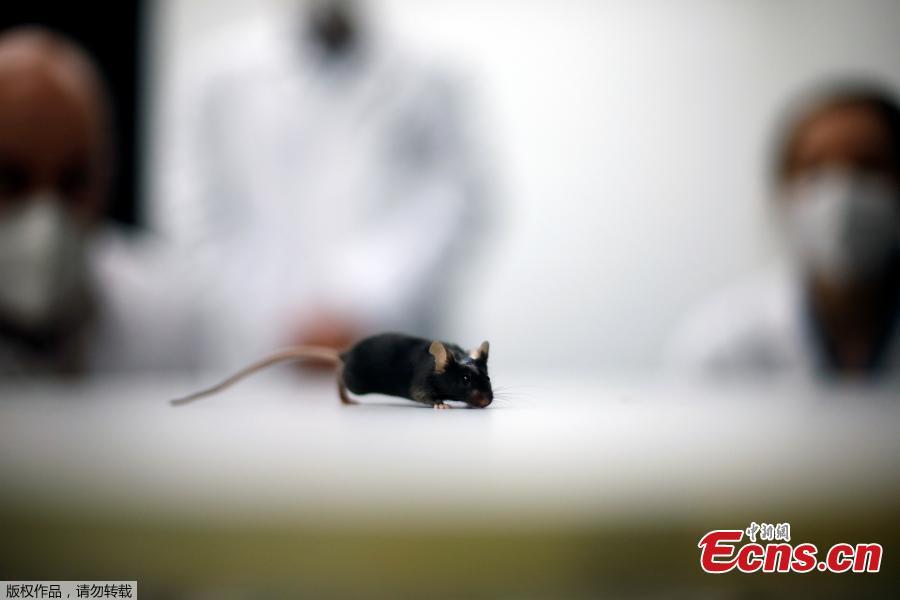
A mouse which recovered from paralysis is seen in a lab at Ruhr University in Bochum, Germany on Jan. 21, 2021. (Photo/Agencies)
German researchers have enabled mice paralyzed after spinal cord injuries to walk again, re-establishing a neural link hitherto considered irreparable in mammals by using a designer protein injected into the brain.

A combination picture shows a paralyzed mouse (L) and a former-paralyzed one in a lab at Ruhr University in Bochum, Germany on Jan. 21, 2021. (Photo/Agencies)
German researchers have enabled mice paralyzed after spinal cord injuries to walk again, re-establishing a neural link hitherto considered irreparable in mammals by using a designer protein injected into the brain.










